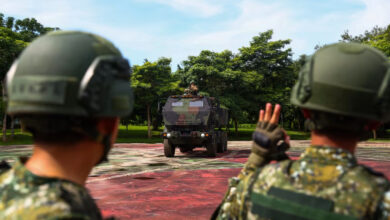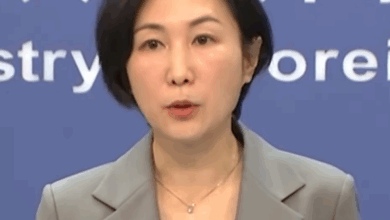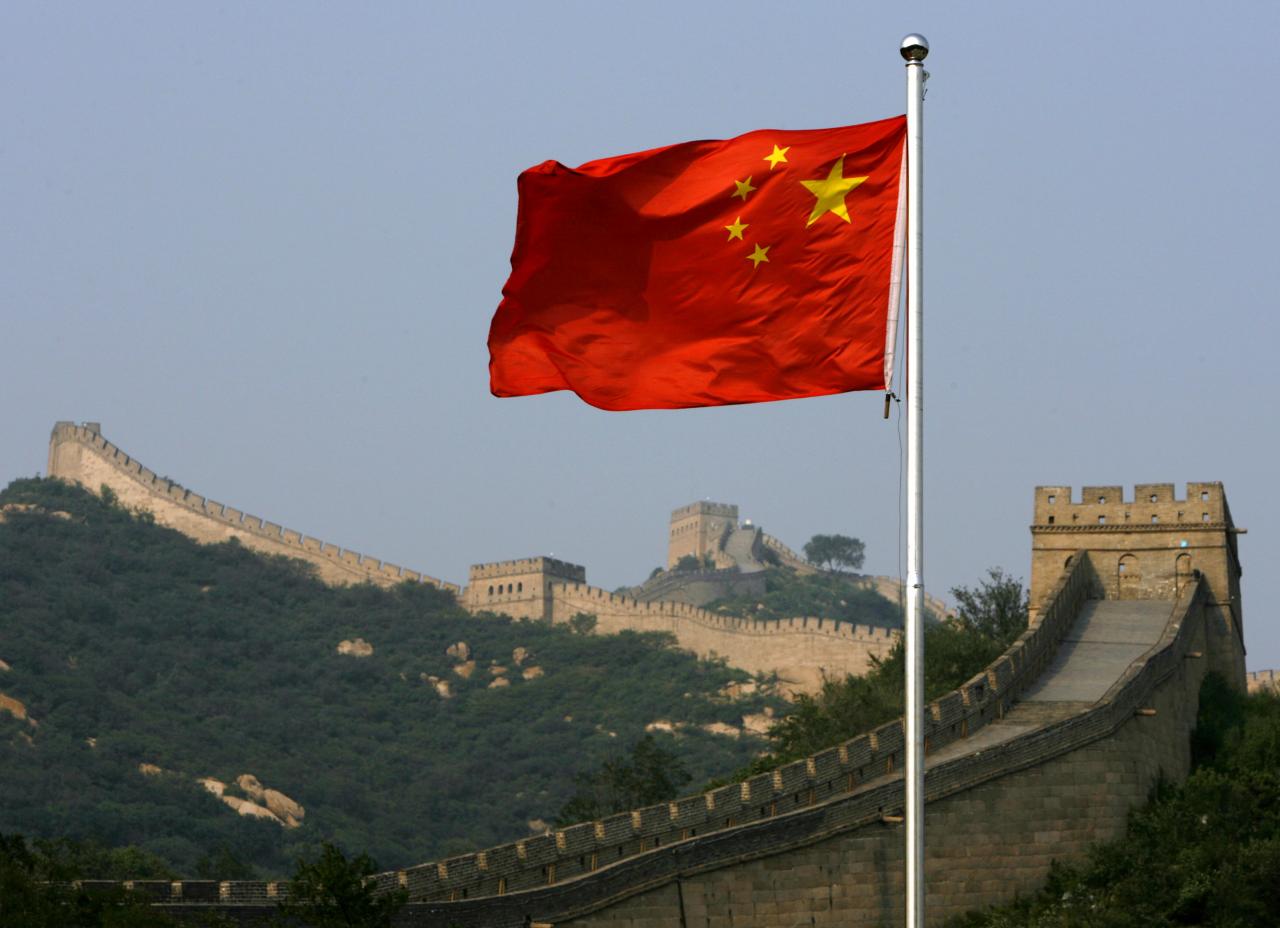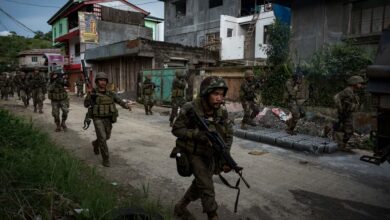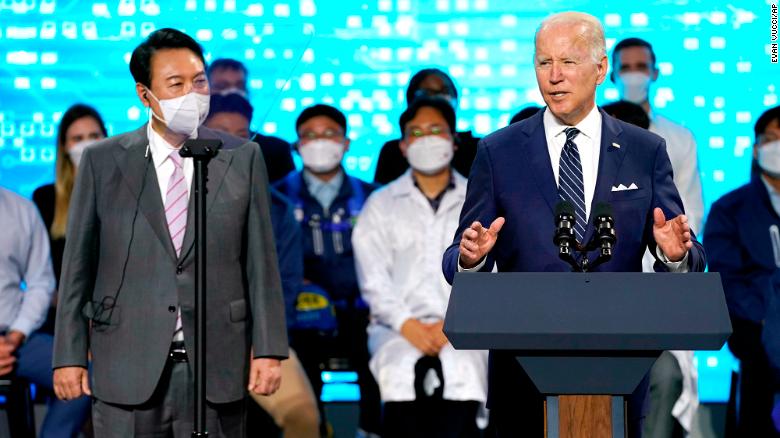
Seoul (CNN) – President Joe Biden and his South Korean counterpart agreed in talks Saturday to “expand the scope and scale of combined military exercises and training on and around the Korean Peninsula,” according to a joint statement released by the leaders afterward.
The decision is a turnabout from the previous administration, which scaled-back exercises on the Korean Peninsula, in part as a way to bring North Korea to the negotiating table. Then-President Trump decried the exercises’ cost and suggested they were provocative.
The decision was a primary takeaway from Biden’s first day of meetings in Asia, where he is working to reaffirm US alliances.
Speaking during a joint press conference, Biden declined to say whether he would meet with North Korean dictator Kim Jong Un, indicating only that such an encounter would depend on Kim.
“That would depend on whether he’s sincere and whether he’s serious,” Biden said.
Biden began his first visit to Asia as President in earnest Saturday, meeting with South Korea’s newly elected leader as the country’s belligerent northern neighbor appeared poised to thrust itself into the conversation with a nuclear or missile test.
The hermit nation’s intensifying provocations had been expected to be at the center of Biden’s talks with South Korea’s new President Yoon Suk Yeol, who took office a little more than a week ago and has signaled a tougher stance on Pyongyang than his predecessor.
Yet Biden also hoped to use the occasion of a new leader in Seoul to expand the US alliance with South Korea beyond just a security partnership defined by the North. Officials said in their first meeting, the US president was hoping to cultivate a willing economic partner who can also help advance collective security goals in the broader Asia-Pacific.
“Our alliance between our countries is built upon shared sacrifice and a joint commitment to the freedom of the Republic of Korea and our firm opposition to changing borders by force,” Biden said during a portion of his meeting that was opened to press.
“Today, with this visit, we’re taking the cooperation between our two countries to new heights,” Biden said.
Also up for discussion in the talks were Russia’s war in Ukraine, trade and the prospect of assisting North Korea confront a recent surge of coronavirus by sharing vaccines, a senior administration official said ahead of time.
Biden has long placed a premium on developing interpersonal ties with his foreign counterparts, and officials said he was looking to develop a strong relationship with Yoon. The two men met privately for a lengthy stretch before joining their delegations.
“We settled everything,” Biden joked after.
Biden will convene a news conference and later attend a state dinner as he embarks upon his debut visit to Asia. Speaking shortly after arriving Friday, Biden said the region he is visiting for the first time will prove critical in the years and decades to come.
“So much of the future of the world is going to be written here, in the Indo-Pacific, in the next several decades,” Biden said, reiterating his desire — also shared by his most recent predecessors — to pivot US foreign policy to focus on Asia even as the world’s attention is consumed by the war in Ukraine.
“We’re standing at an inflection point in history, where the decisions we make today will have far-reaching impact on the world we’re leaving to our children tomorrow,” Biden said.
Biden hopes to reassure his hosts in Seoul and Tokyo he remains committed to two of the most important US alliances, even as his attention has been consumed by Russia’s war in Ukraine and after his predecessor, former President Donald Trump, threatened to withdraw American troops from the Korean peninsula.
By contrast, Biden has put the US force posture in Korea on full display during his visit, greeting the Army commander of US Force Korea when he arrived at Osan Air Base, outside Seoul, on Friday evening. He was expected to meet with US troops later in his visit.
US allies in Asia, as they do around the world, have looked to Biden to reaffirm traditional alliances as regional tensions boil over. But like elsewhere, questions linger about how durable Biden’s promises on security and trade can be, given Trump appears to be waiting in the wings for a third presidential run.
In Asia, the threat from North Korea has been put into stark relief as US officials warn the country could be preparing its seventh underground nuclear test or a launch of an intercontinental ballistic missile.
The tests by dictator Kim Jong Un would insert North Korea squarely back into the global conversation after months of intensifying provocations. And it would underscore the stalled diplomacy between the United States and Pyongyang, despite attempts by Biden administration officials to restart talks.
US officials say they have prepared contingencies should a test occur.
Yoon, a former prosecutor who has never before held elective office, has signaled a tougher stance on North Korea, even as he looks to expand Seoul’s foreign policy beyond just dealing with its problematic northern neighbor. He campaigned as a staunch supporter of the US alliance, and has said he wants to see it strengthened, including on the economic front.
That is welcome news for Biden, who believes a strong network of allies in Asia can help counter China’s military and economic ambitions — just as a revived NATO alliance has isolated Russia for its invasion in Ukraine through packages of withering sanctions.
But just like in Europe, where dependence on Russian oil and gas has limited the effect of sanctions, a US reliance on China-made products poses concerns should Beijing’s military ambitions escalate further.
That was Biden’s message Friday while touring a Samsung factory making semiconductors, which have been in short supply after some Chinese plants were closed during the Covid-19 pandemic. In a short speech, Biden tied together the chip shortage with the war in Ukraine, saying the US and its allies must reduce their dependence on essential items from autocratic regimes.
“Putin’s brutal and unprovoked war in Ukraine has further spotlighted the need to secure our critical supply chains so that our economy, our economic and our national security are not dependent on countries that don’t share our values,” Biden said.

